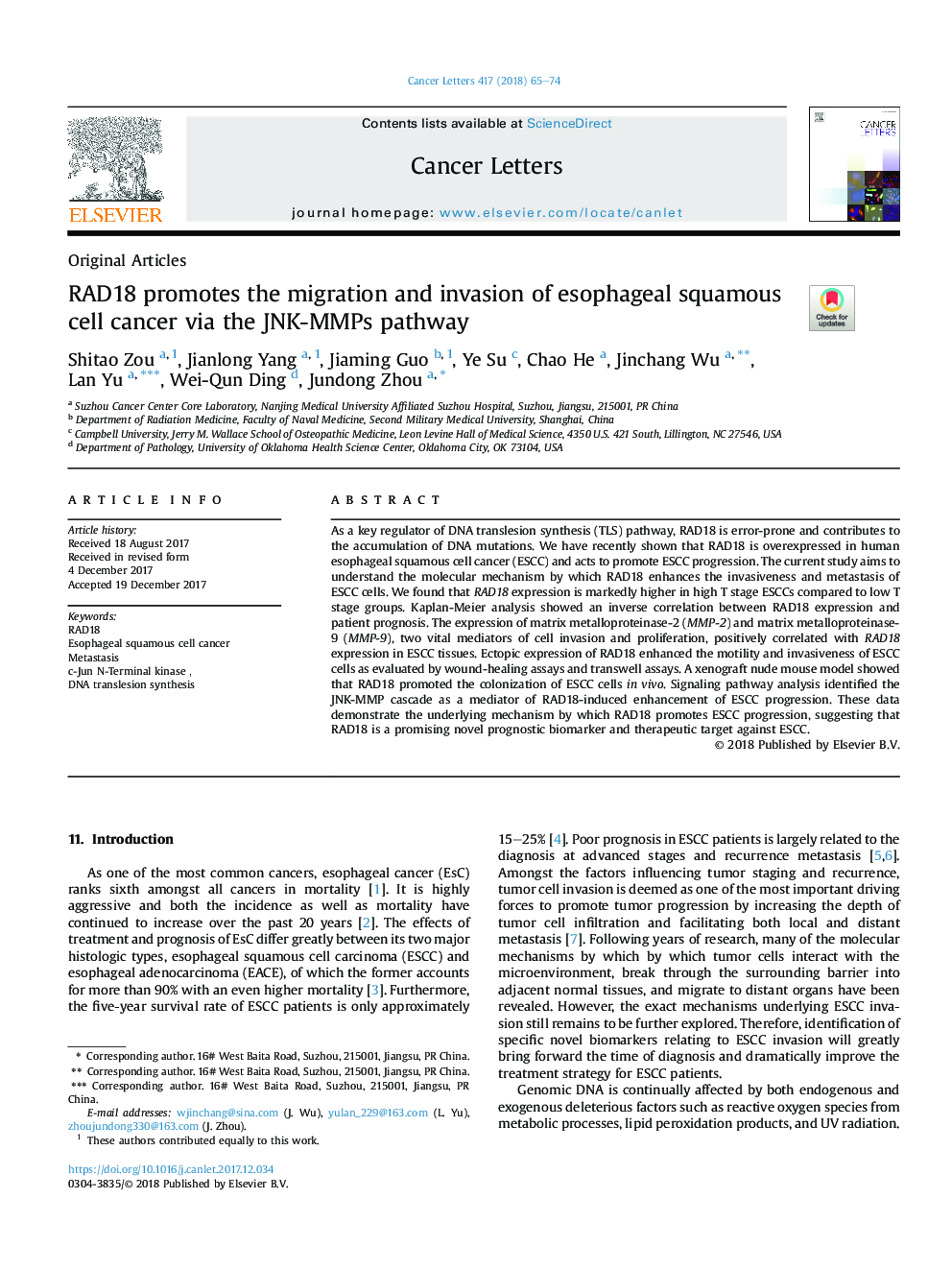| Article ID | Journal | Published Year | Pages | File Type |
|---|---|---|---|---|
| 8434849 | Cancer Letters | 2018 | 10 Pages |
Abstract
As a key regulator of DNA translesion synthesis (TLS) pathway, RAD18 is error-prone and contributes to the accumulation of DNA mutations. We have recently shown that RAD18 is overexpressed in human esophageal squamous cell cancer (ESCC) and acts to promote ESCC progression. The current study aims to understand the molecular mechanism by which RAD18 enhances the invasiveness and metastasis of ESCC cells. We found that RAD18 expression is markedly higher in high T stage ESCCs compared to low T stage groups. Kaplan-Meier analysis showed an inverse correlation between RAD18 expression and patient prognosis. The expression of matrix metalloproteinase-2 (MMP-2) and matrix metalloproteinase-9 (MMP-9), two vital mediators of cell invasion and proliferation, positively correlated with RAD18 expression in ESCC tissues. Ectopic expression of RAD18 enhanced the motility and invasiveness of ESCC cells as evaluated by wound-healing assays and transwell assays. A xenograft nude mouse model showed that RAD18 promoted the colonization of ESCC cells in vivo. Signaling pathway analysis identified the JNK-MMP cascade as a mediator of RAD18-induced enhancement of ESCC progression. These data demonstrate the underlying mechanism by which RAD18 promotes ESCC progression, suggesting that RAD18 is a promising novel prognostic biomarker and therapeutic target against ESCC.
Related Topics
Life Sciences
Biochemistry, Genetics and Molecular Biology
Cancer Research
Authors
Shitao Zou, Jianlong Yang, Jiaming Guo, Ye Su, Chao He, Jinchang Wu, Lan Yu, Wei-Qun Ding, Jundong Zhou,
